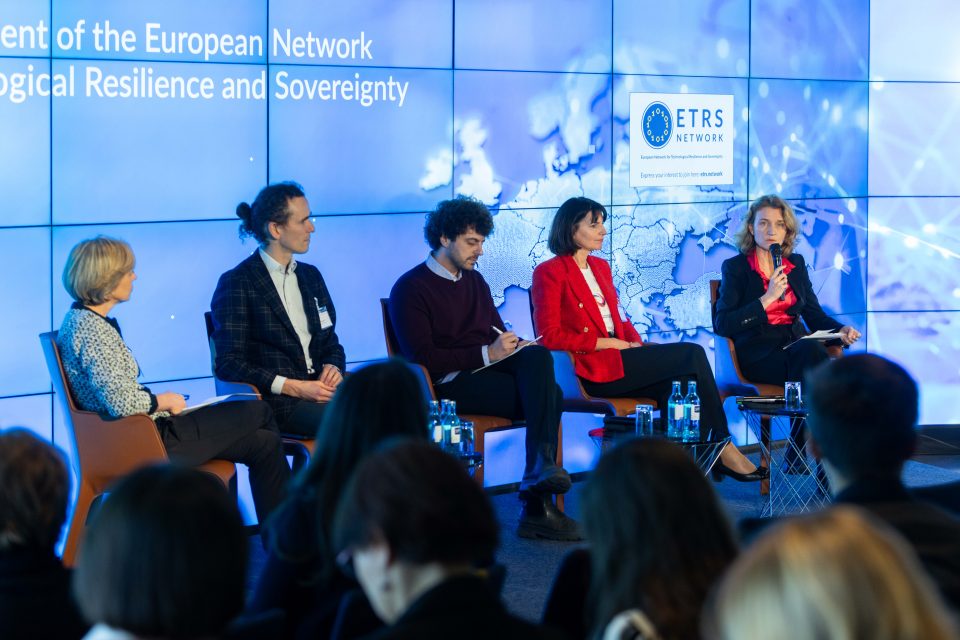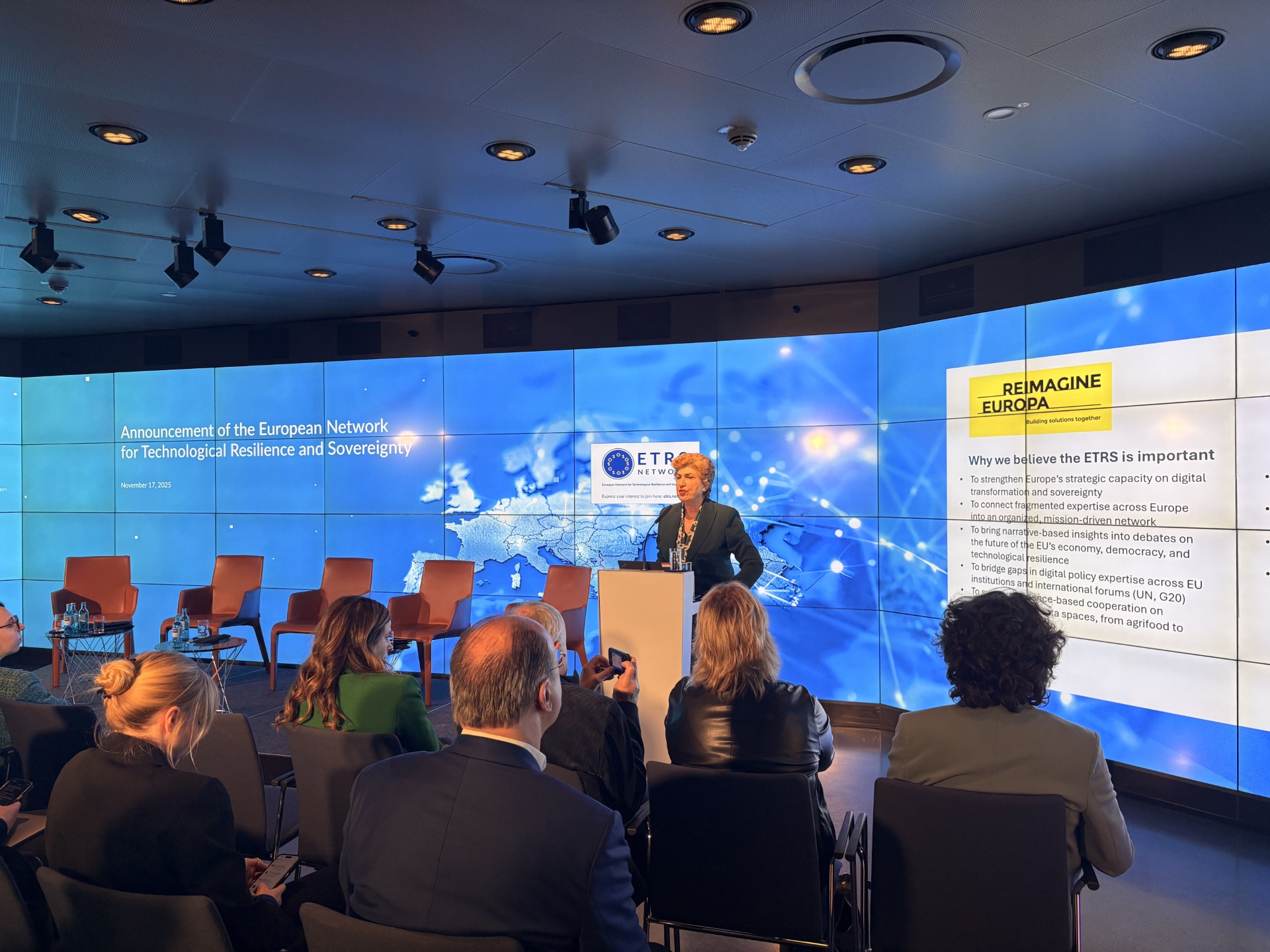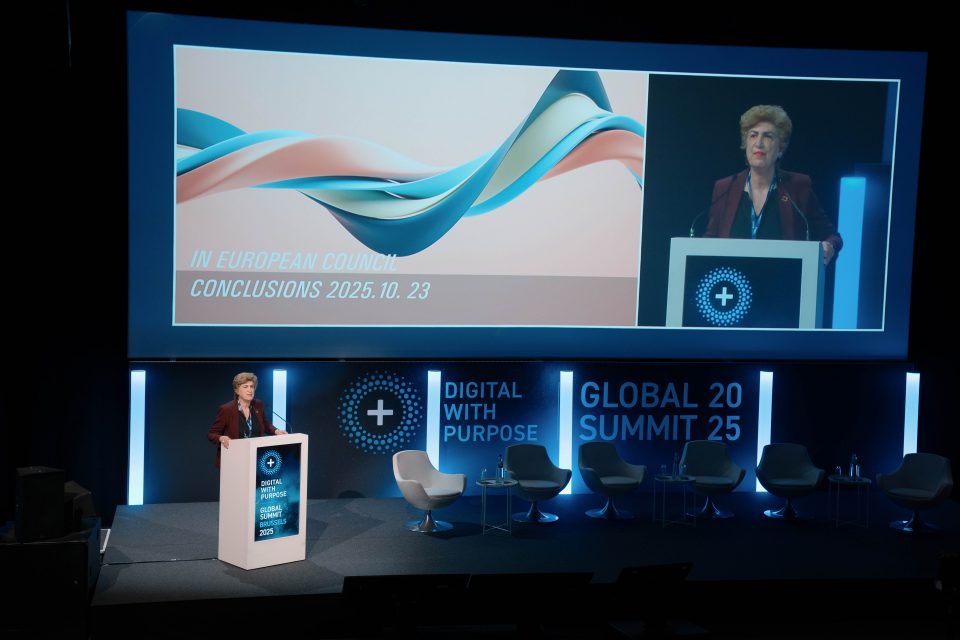Re-Imagine Europa has joined forces with leading think tanks across the EU to launch an ambitious initiative directed to boosting European’s digital resilience and sovereignty, and closing the gap with USA and China. Launched on the eve of the Summit on European Digital Sovereignty in Berlin, the European Network for Technological Resilience and Sovereignty (ETRS) marks a significant move that underscores the growing consensus on the need to secure Europe’s digital future.
Europe currently relies on the United States and China for over 80% of its critical digital technologies, including AI, cloud infrastructure and semiconductors. A dependency that founding members of ETRS warn jeopardises not just Europe’s economic competitiveness but also its strategic autonomy and democratic values. The ETRS is a collaborative platform that brings together leading research institutions, policymakers, and industry experts to facilitate knowledge exchange, conduct strategic analyses of technology dependencies, and identify practical, evidence-based solutions. By promoting policy advocacy for a European values driven, open, and resilient digital infrastructure, the network seeks to turn growing political momentum around technological sovereignty into coordinated, actionable strategies that help Europe remain innovative, secure, and globally competitive. The initiative, promoted initially by the Bertelsmann Stiftung (Germany), the Centre for European Policy Studies (CEPS) (Belgium), the AI & Society Institute (France), and the Polish Economic Institute (PEI), aims to be the ‘connective tissue’ linking Europe’s fragmented efforts in this crucial area.

“Europe has heard the wake-up call, but greater coordination, research, and evidence-based policymaking are needed, a true knowledge engine. At the same time, this is about more than technology or economics. It affects us all and the question of what kind of society we want to live in,” says Martin Hullin, Director Network for Technological Resilience and Sovereignty at Europe’s Future Program, Bertelsmann Stiftung. “ETRS will serve as the knowledge pool and connective tissue linking Europe’s research expertise across academia, civil society, public institutions & industry, by turning fragmented efforts into a shared vision for technological resilience and social and responsible progress,” added Constance de Leusse, Executive Director of the AI and Society Institute. According to Andrea Renda, Director of Research at CEPS, “ETRS is a crucial step toward actively shaping Europe’s technological future collaboratively, in an evidence-based manner, and in service of society.
In addition to the four founding members, the network welcomed more than a dozen inaugural members, including Re-Imagine Europa. By joining the ETRS, Re-Imagine Europa reinforce its commitment to shaping Europe’s technological future in a way that is both secure and competitive. Maria João Rodrigues, Re-Imagine Europa’s Chair, highlighted the need to “strenghthen Europe’s strategic capacity on digital transformation and sovereignty, and connect the fragmented across Europe into an organised, mision-driven network”. “What is a stake is democracy”, she alerted. “If we want to transform reality, we need to bring together all the relevant actors, sector by sector”, se added.
The ETRS network promises to provide the neutral, pan-European platform needed to conduct the data-driven analysis required to identify vulnerabilities and options for strengthening sovereignty without sacrificing the continent’s ability to innovate. As Maciej Sobolewski, Director of the Polish Economic Institute said: “ETRS invites think tanks, research institutions, and independent experts across Europe to join the network and, through robust research, contribute to shaping a resilient digital future and strengthening Europe’s technological autonomy.”
As part of its initial efforts, the network, including its inaugural members, has already prepared a concrete policy toolkit for the Berlin Summit, resulting from a recent Franco-German dialogue on the issue.
Picture by Sebastian Pfütze.




